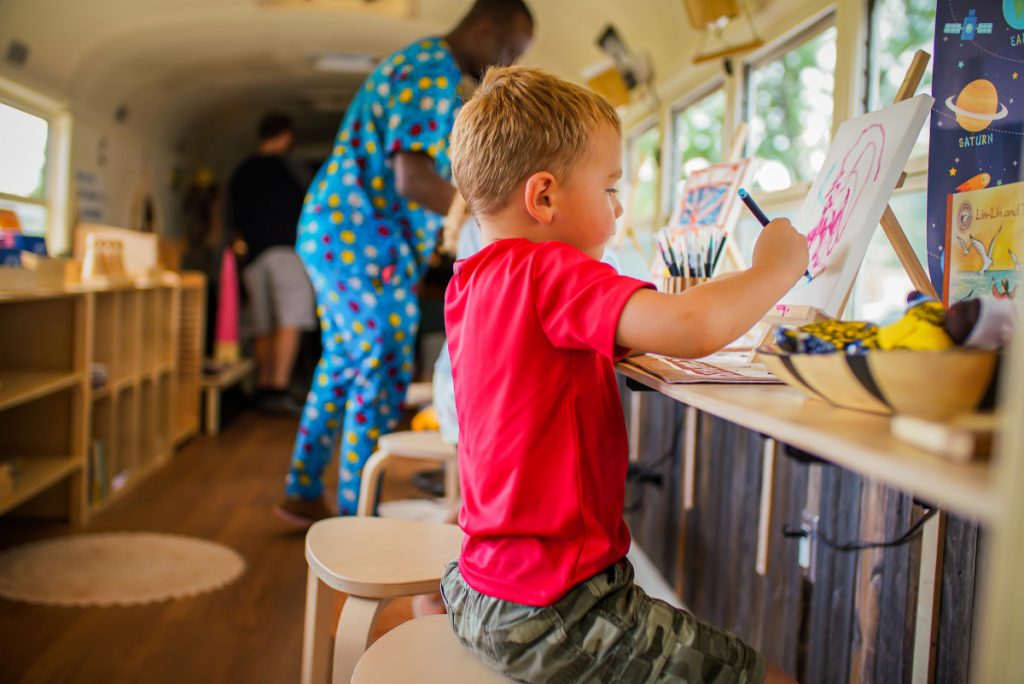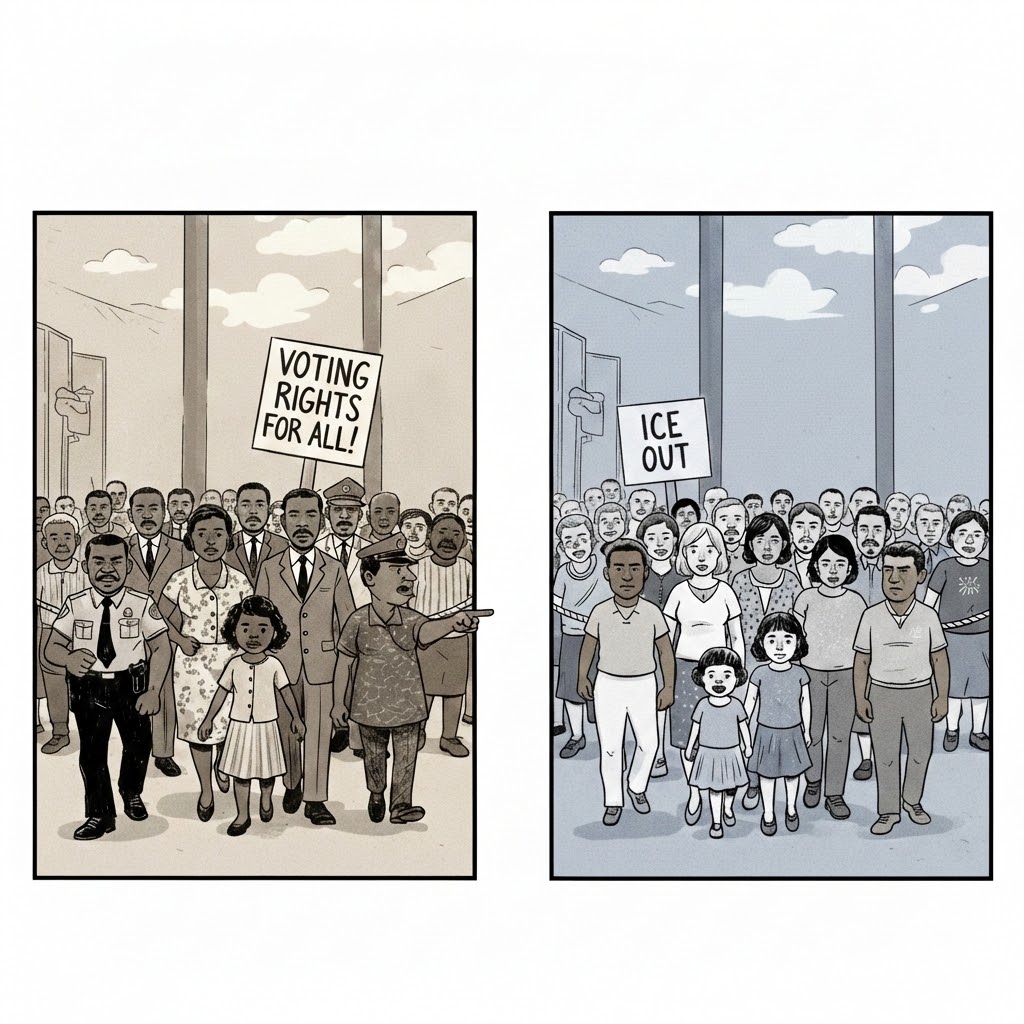Editor’s note: This article was written by Tatenda Blessing Muchiriri, the founder, executive director, and “chief dreamer” of Montessori on Wheels.
In Zimbabwe, where I was raised, school buses were symbols of fun and learning.
But in the U.S., communities of color have had different experiences – often complicated or painful experiences – with school buses.
I was reminded of this when I began to pilot the Montessori on Wheels program in Five Points.
The response to Montessori on Wheels – a mobile Montessori classroom that brings learning to communities anytime, anywhere – was overwhelmingly positive.
Some families told me the bus reminded them of the Magic School Bus, the story books they read when they were children.
But there was a deeper significance in what we were doing, too.
One man, a Black father, told me he remembered when school buses were used to take people of color out of their communities and to “better” schools (or what they were told were better schools). He said what we had done was powerful; we had flipped the narrative. We brought our bus – a space where children and families could dream and play and design learning – into their community.
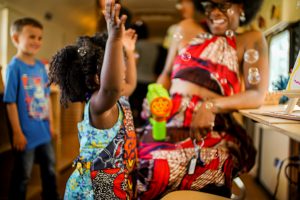 This has been one of our primary goals with Montessori on Wheels: To help children and families look out their windows and see their communities as spaces for learning and innovation.
This has been one of our primary goals with Montessori on Wheels: To help children and families look out their windows and see their communities as spaces for learning and innovation.
I believe if joy and learning and exploration can happen on our bus, they can happen anywhere. And that begins to shape children’s and families perceptions of what learning is and what it can be.
To be honest, I didn’t set out to create a classroom on wheels, though I had always dreamed of ways to reimagine education in Denver.
Several years ago, I had planned to start a new Montessori school in Denver.
During a fellowship with Moonshot edVentures, I conducted a series of listening sessions with people in communities of color. I wanted to understand how I could make Montessori education more accessible to Black and brown children.
Through my conversations with families, I discovered many felt that education and learning was often done “to” them and not “with” them. They wanted to be more active participants in the design of their children’s education, and they didn’t want to have to travel far for high-quality learning opportunities. For some families, transportation has long been a barrier to accessing education.
Many families did not think Montessori schools were accessible or “for them.” But, when I exposed them to Montessori pedagogy and curriculum, they loved what they learned and were eager to know more.
During my conversations with families, it became clear to me that many people who start schools expect families to come to them, instead of thinking about how to make learning more accessible.
I realized that it was necessary to move education away from institutions and into neighborhoods and spaces where people could easily access high-quality learning.
That is when I came up with the idea for Montessori on Wheels.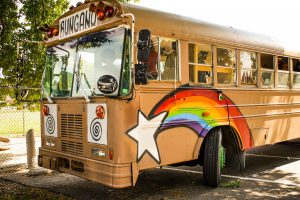
Initially, I hadn’t thought about Montessori on Wheels so literally – I thought I would create learning pods or pop-up events in neighborhoods. But the opportunity to obtain a bus presented itself, and the pieces started to fall into place. If I wanted to meet families and children in their communities, it made sense that the classroom would be on wheels.
Our model has been popular in the communities we serve. Over the last two years, we’ve exposed thousands of children to Montessori learning, and we’ve expanded to two buses.
We’ve partnered with several school districts and schools as well as a number of community-led organizations, including The Village Institute in Aurora which serves immigrant and refugee families.
We’ve also hosted two summer camps, where we’ve focused on literacy, writing, math, leadership and other skills, as well as providing joyful, exciting activities for kids to remember long after summer ends.
Now, we’re considering how we scale Montessori on Wheels, and we’re asking ourselves how best we can sustainably grow to continue to serve families and children. We’re also taking our buses to St. Louis this fall, and thinking about how our programming could expand to something beyond Colorado.
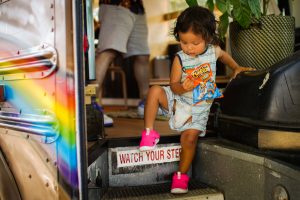 Through this all, I’ve been happiest to see how families experience learning on our buses.
Through this all, I’ve been happiest to see how families experience learning on our buses.
For some, it’s the first time they see their children as learners, and it’s the first time they’re encouraged to engage in their children’s education. We are intentional about helping families see themselves as their children’s first teachers. They are excited to take their learning home with them, and their children are eager to take what they’ve learned back to their schools.
By making learning joyful and accessible, we have empowered families and children to see education as a collaborative and enriching journey.
Our Montessori on Wheels buses aren’t just vehicles. They’re helping transform how education is perceived and experienced.

